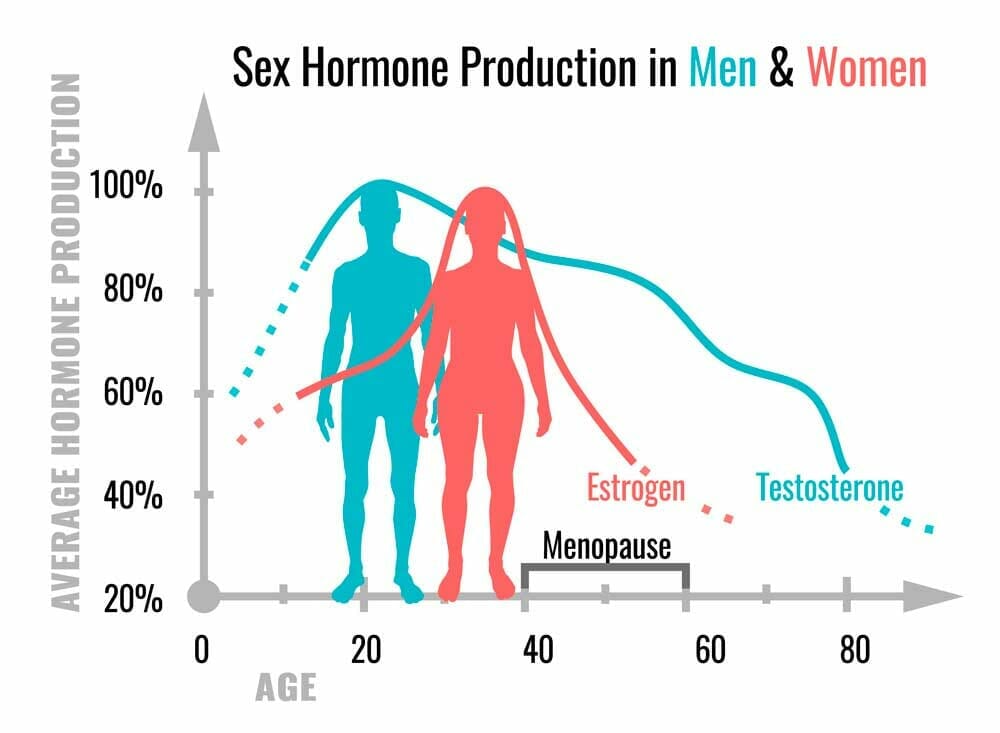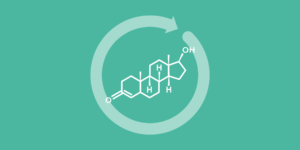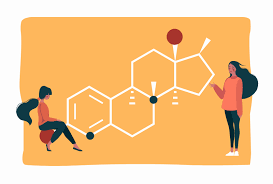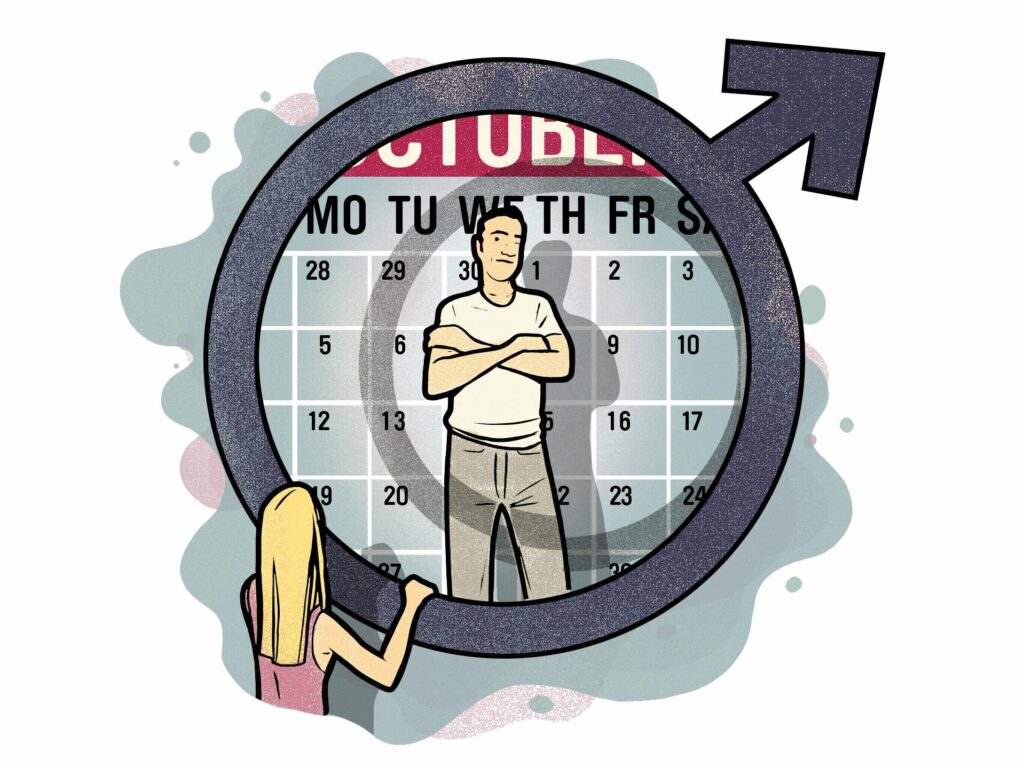There is a lot of discussion about male hormone cycles. Some people believe they exist, while others think they are a myth. In this blog post, we will explore the topic and see what the experts have to say. We will also look at research and discoveries that have been made in this area. Finally, we will give our opinion on the matter.
Contents
Understanding Male Hormone Cycles

Just like women, men have hormones that fluctuate throughout the month. These hormones are responsible for a variety of things, including sex drive, energy levels, and mood. When these hormones are in balance, a man feels good. However, when they are out of balance, he may experience several problems
Do Men Have Hormone Cycles
It is a common belief that men do not have hormonal cycles. This is because they do not experience the same monthly changes that women do. However, this does not mean that men do not have hormones.
Men also have hormone fluctuations throughout the month. In fact, they have two main hormones: testosterone and estrogen. These hormones fluctuate throughout the month and can affect a man’s mood, energy levels, and sex drive.
NOTE: The main difference between men and women is that men’s hormones fluctuate more dramatically.
Stages In Male Hormone Cycle
There are four main stages in a male hormone cycle:
- The first stage is called the follicular phase. This is when testosterone levels are at their lowest.
- The second stage is called the ovulation phase. This is when testosterone levels start to increase.
- The third stage is called the luteal phase. This is when testosterone levels are at their highest.
- The fourth stage is called the post-menopausal phase. This is when testosterone levels start to decline.
Midlife Hormone Changes
As men get older, they may experience changes in their hormone levels. Testosterone levels start to decline in men in their 40s. Estrogen levels also start to decline, which can cause hot flashes and night sweats. These changes are known as midlife hormonal changes. These changes can affect a man’s mood, energy levels, and sex drive.
Furthermore, these changes can cause several problems, including:
- Lower sex drive
- Erectile dysfunction
- Weight gain
- Hair loss
- Depression
Can Male Hormone Cycles Explain Midlife Crisis
Some people believe that the midlife crisis is caused by changes in a man’s hormones. They believe that as testosterone levels decline, men may start to experience symptoms of depression and anxiety. They may also have problems with their sex drive and weight gain.
NOTE: While there is some evidence to support this theory, more research is needed to confirm it.
Effects of Testosterone Fluctuations
Testosterone is the hormone that is responsible for a man’s sex drive. It is also responsible for his energy levels and mood. The fluctuations in testosterone levels can have several effects on a man’s body.
For example, low testosterone levels can cause:
- Fatigue
- Depression
- Poor concentration
- Low sex drive
High testosterone levels can cause:
- Aggression
- Irritability
- Man boobs (gynecomastia)
- Hair loss
- Weight gain
How to Balance Male Hormones
If you are concerned about your hormone levels, there are a few things you can do to balance them.
- First, make sure you are eating a healthy diet. This means eating plenty of fruits, vegetables, and whole grains. You should also avoid processed foods and sugary drinks.
- Second, exercise regularly. Exercise has been shown to help balance hormones.
- Third, get enough sleep. Sleep is important for overall health and can also help balance hormones.
- Fourth, avoid stress. Stress can trigger hormone imbalances. Try to find ways to relax and de-stress.
- Finally, see your doctor if you are still concerned about your hormone levels. They can order tests to check your testosterone levels. If they are low, your doctor may prescribe testosterone replacement therapy.
Tracing History And Development

MHC Was Proposed
The concept of male hormone cycles is not a new one. It was first proposed in the 1930s by Dr. T.W. Wilson. He believed that testosterone levels followed a cyclical pattern, with peaks and valleys occurring every 28 days. However, his theory was never proven and it remained controversial for many years.
Fluctuations Were Verified
In more recent times, the theory has been studied more extensively. One study was conducted in 2007 by a team of researchers from the University of Toronto. They looked at testosterone levels in men over a period of four months. Their findings showed that there were indeed fluctuations in testosterone levels, but the cycles were not always regular.
One More Study Backed-up Fluctuations
The most recent study on this topic was published in 2016 in the journal PLOS ONE. This study looked at testosterone levels in a group of men over the course of one year. The results showed that there were indeed fluctuations in testosterone levels, but they were not always regular.
Inference: Fluctuations Are Real
So, what do these studies tell us? Well, they show that testosterone levels do fluctuate in men, but the cycles are not always regular. This means that the concept of male hormone cycles is a real one.
Comparing Male And Female Hormone Cycles

There are some similarities between the male and female hormone cycles. For example, both men and women experience a decline in testosterone as they age. However, there are also some differences.
- One of the biggest differences is that men’s hormone cycles are more dramatic. This means that their mood, energy levels, and sex drive can fluctuate more throughout the month.
- Furthermore, men’s hormone cycles are shorter than women’s. This is because they have two main hormones: testosterone and estrogen. These hormones fluctuate more throughout the month, which causes the cycle to be shorter.
Hearing From Experts
Now that we have seen what the research says, let’s take a look at what the experts have to say about male hormone cycles.
Dr. Abraham Morgentaler
Dr. Abraham Morgentaler is a urologist and author of “The Male Hormone Cycle.” He believes that these cycles are real and that they can have a significant impact on a man’s health. Dr. Morgentaler says that “the monthly ebb and flow of testosterone levels affects almost every aspect of a man’s health, from his energy level and mood to his libido and even his risk of heart disease.”
Dr. Harry Fisch
Dr. Harry Fisch is a professor of clinical urology at Weill Cornell Medical College. He has also written a book on the topic, entitled “The Male Hormone Cycle: Understanding Its Role in Your Health.” Dr. Fisch believes that male hormone cycles are real and that they can have a significant impact on a man’s health. He says that “testosterone levels fluctuate throughout the month, and this can affect a man’s energy level, mood, libido, and even his risk of heart disease.”
Our Inference
So, what do we conclude from all of this? Well, it seems that the experts believe that male hormone cycles are real and that they can have a significant impact on a man’s health. This is in line with what the research tells us. Therefore, we can conclude that male hormone cycles are most likely real and that they are something you should be aware of.
Resources
For more information on male hormone cycles, please check out the following resources:
- The Male Hormone Cycle by Dr. Abraham Morgentaler
- The Male Hormone Cycle: Understanding Its Role in Your Health by Dr. Harry Fisch
- PLOS ONE study on testosterone levels in men over the course of one year
Conclusion
While there is some evidence to support the existence of male hormone cycles, more research is needed to confirm it. Male hormone cycles may play a role in the midlife crisis, but more research is needed to determine if this is truly the case. Comparing male and female hormonal cycles can help us better understand how these cycles work.
A Word From Therapy Mantra
Your mental health — Your psychological, emotional, and social well-being — has an impact on every aspect of your life. Positive mental health essentially allows you to effectively deal with life’s everyday challenges.
At TherapyMantra, we have a team of therapists who provide affordable online therapy to assist you with issues such as depression, anxiety, stress, workplace Issues, addiction, relationship, OCD, LGBTQ, and PTSD. You can book a free therapy or download our free Android or iOS app.


